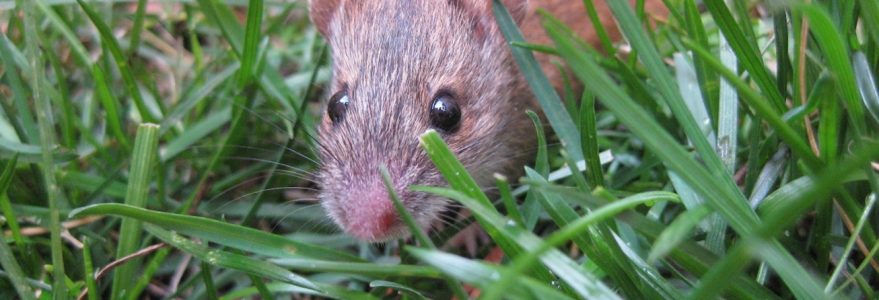The international research team observed highly flexible dodging behaviour in wild rodents. Similar cognitive performance used to be attributed to corvidae or higher primates. Scientists from the UW Faculty of Biology concurred in the study and their findings were published in Royal Society Open Science.
For over a year, the scientists from the Faculty of Biology, the University of Warsaw: Prof. Piotr Bębas and Dr Marcin Chrzanowski, together with Prof. Rafał Stryjek from the Institute of Psychology, the Polish Academy of Sciences, were observing behaviour of free-living rodents, i.e. wild field mice, in their natural environment. The investigations were carried out within the Białołęka district, several hundred meters from the boundary of the Łęgi Czarnej Strugi nature reserve.
Masters of escape
The researchers found out the cunning that the mice displayed while escaping from other individuals and competing with them for food. Although mice are true masters of escape, sometimes alertness and quick running are not enough to avoid danger. In certain situations, a more sophisticated form of defense is necessary: deception. Similar cognitive performance used to be attributed to corvidae or higher primates, including humans.
Such performance of the rodents was noted incidentally. The main aim of the study was to analyse reactions of rodents to natural, i.e., environmentally encountered odours (e.g. foxes), which could potentially be deterring. During the validation of the experiment, i.e. selecting the best experimental setup that could be exploited as a control in the study, the observed rodents revealed their ability of deliberate deception.
Study in natural habitat
For monitoring, the scientists used self-constructed chambers that were placed in a forest on the outskirts of Warsaw. The construction of the chambers allowed the rodents to explore the territory without any constraints. Also, the chambers were equipped with cameras to monitor the animals’ behavior day and night, record environmental conditions, and even measure body temperature.
“Such detailed studies on rodents’ behaviour conducted in their natural habitat are rare as these animals are primarily observed in a laboratory environment. Nevertheless, even with the most optimal conditions for the rodents’ development, ensuring their well-being, we still are not able to exclude many variables that affect their natural behaviour – many aspects of which remain undiscovered. We may miss many interesting aspects of animal life,” Prof. Bębas said.
Unique data
The researchers described their findings in Royal Society Open Science. Not only the research work can be exploited in the psychology of animals but also it can be useful in further studies into intentionality in animals and the theory of mind.
The paper and the equipment for the study was funded from the “Excellence Initiative – Research University”.
Publication details
Raffaele d’Isa, Michale H. Parsons, Marcin Chrzanowski, Piotr Bębas, Rafał Stryjek, 2024, Catch me if you can: free-living mice show a highly flexible dodging behaviour suggestive of intentional tactical deception, Royal Society Open Science: https://doi.org/10.1098/rsos.231692



